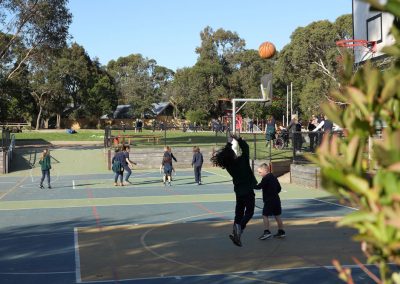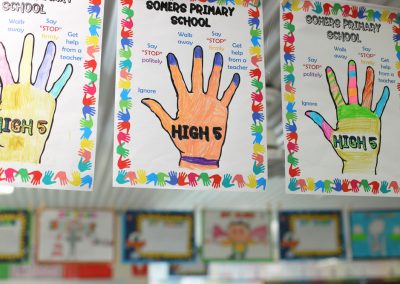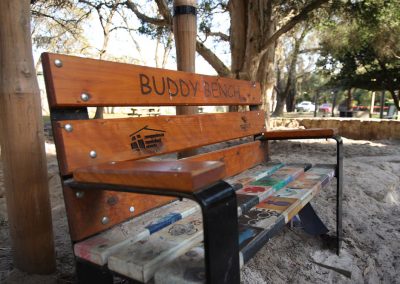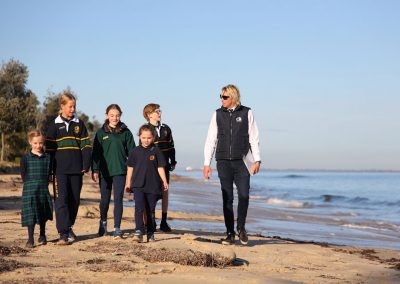wellbeing
Programs and Initiatives
At Somers Primary, we believe children’s health and wellbeing is of primary importance – children cannot learn unless they are happy and healthy. Our staff are extremely dedicated and care deeply for all of our students, as learners and as young people. Somers Primary School is renowned for our positive relationships with families, our flexibility to support students with additional needs and our strong ethos of inclusion and diversity.
Our school’s Student Engagement Policy, developed and endorsed by our school council, guides our school in making decisions that ensure the engagement and wellbeing of children at school.
Our school has a strong Wellbeing Team, led by our Principal and Assistant Principal. Our wellbeing team is comprised of teachers from each level of the school, as well as regional Student Support Officers from the Department of Education and Training. This team meets fortnightly to case-manage students needing additional support, and students may be referred to our wellbeing team by parents, teachers or themselves.
Our school also has a Health and Wellbeing School Council Sub-Committee, who lead the development of policies and processes to ensure that our school is governed in a manner that support the health and wellbeing of our students, staff and families. Parents and community members are welcome to become part of this sub-committee at school.
In addition, student wellbeing leaders in year six ensure that student voice is integral to leading engagement and wellbeing at Somers Primary.
At the heart of our success with student wellbeing is relationships. At Somers Primary School, children and families are a valued and respected part of our school community.
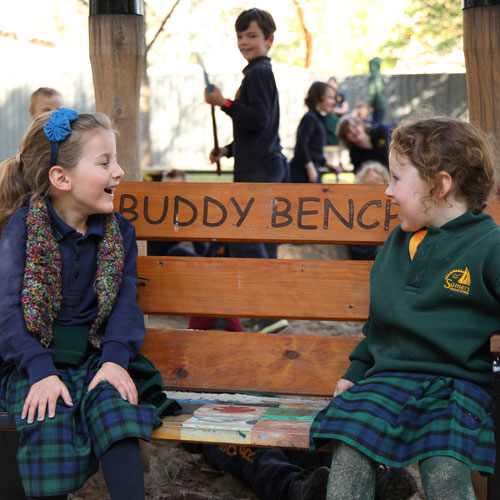
SCHOOL WIDE POSITIVE BEHAVIOUR SUPPORT
Somers Primary School is proudly recognised as a School-wide Positive Behaviour Support school.
School-wide positive behaviour support (SWPBS) is a framework that brings together school communities to develop positive, safe, supportive learning cultures. SWPBS assists schools to improve social, emotional, behavioural and academic outcomes for children and young people.
Our goal is that teachers and students have more time to focus on relationships and classroom instruction. Students and staff benefit from:
- increased respectful and positive behaviour
- increased time focused on instruction
- improved social-emotional wellbeing
- positive and respectful relationships among students and staff
- increased adoption of evidence-based instructional practices
- a predictable learning environment with improved perceptions of safety and increased attendance
As part of SWPBS, our school has developed:
A common philosophy and purpose: Staff and students use a common language to discuss behaviour, related to our school values of Collaboration, Learning and Respect (CLEaR). School philosophy emphasises the need to teach appropriate behaviour much like academic learning.
Leadership and school-wide support: School leaders publicly endorse and support SWPBS. A team at the school leads implementation by creating, reviewing and monitoring an action plan. The work is done in collaboration by the whole staff with input from parents, students and the community.
A clearly-defined a set of expected behaviours: Our school has identified behavioural expectations that apply at all times. Clear, positively stated examples are identified and displayed in different school settings.
Procedures for teaching and practising expected behaviours: A school-wide plan has been developed to ensure behavioural expectations are taught to all students by all staff.
A continuum of procedures to encourage expected behaviours: Our CLEaR Card system and CLEaR Cafe has acknowledges expected behaviour and promotes commitment from all members of the school community.
A continuum of procedures to discourage inappropriate behaviour: Our school has identified behaviours of concern and identified specific strategies and responses to minor and major behavioural infractions.
Procedures for record-keeping, decision making and ongoing monitoring: We review data on repeated behaviour issues, the settings in which they occur, and the consequences most likely to be applied for inappropriate behaviours. They correlate these with other sources of data such as academic progress, and analyse this data to make necessary adjustments to school operations in an effort to reduce inappropriate behaviour.
Support for staff to use effective classroom practices: We support staff to adopt evidence-based instructional practices associated with reductions in inappropriate behaviour.
SWPBS uses a tiered intervention framework which invests in:
- primary prevention (tier 1): supports for all students, staff and settings
- secondary prevention (tier 2): additional specialised group systems for students with at-risk behaviour
- tertiary prevention (tier 3): specialised, individualised systems for students with high-risk behaviour, provided in addition to primary and secondary prevention
SOCIAL AND EMOTIONAL LEARNING
Across our school, students are explicitly taught Social and Emotional regulation skills using the Resilience, Rights and Respectful Relationships (4R) learning materials. These learning materials cover eight topics of Social and Emotional Learning across all levels of primary education: Emotional Literacy; Personal Strengths; Positive Coping; Problem Solving; Stress Management; Help Seeking; Gender and Identity; and Positive Gender Relationships.
In this program students learn about how to:
– understand, express and respond appropriately to emotions
– recognise and understand strengths and positive qualities in themselves and others
– develop a range of productive coping strategies, including positive self-talk
– solve problems using critical and creative thinking in real-life scenarios exploring personal, social and ethical dilemmas
– manage stress in their everyday lives
– seek help, as well as provide help to peers
– develop positive behaviours and attitudes related to human rights and gender identity, with a focus on respect within relationships.
These topics are covered in a developmentally appropriate way throughout the school.
STUDENTS WITH ADDITIONAL NEEDS AND VULNERABLE STUDENTS
Our school proudly supports student with additional needs, including students with a disability. We have a string track record supporting students with additional needs, and offer a range of supports to students to ensure they are happy, engaged and making great progress at school. Currently we have nine integration aides working at our school to support students with additional needs. Termly student support group meetings are held with families for students with a disability, indigenous students and students living in out of home care. This student support group establishes an individual learning plan for these students, with measurable outcomes. We support students’ access to a number of health services which can be accessed at school.

